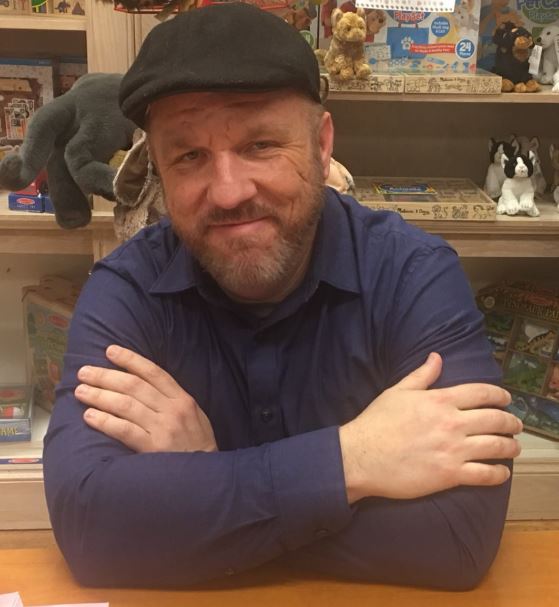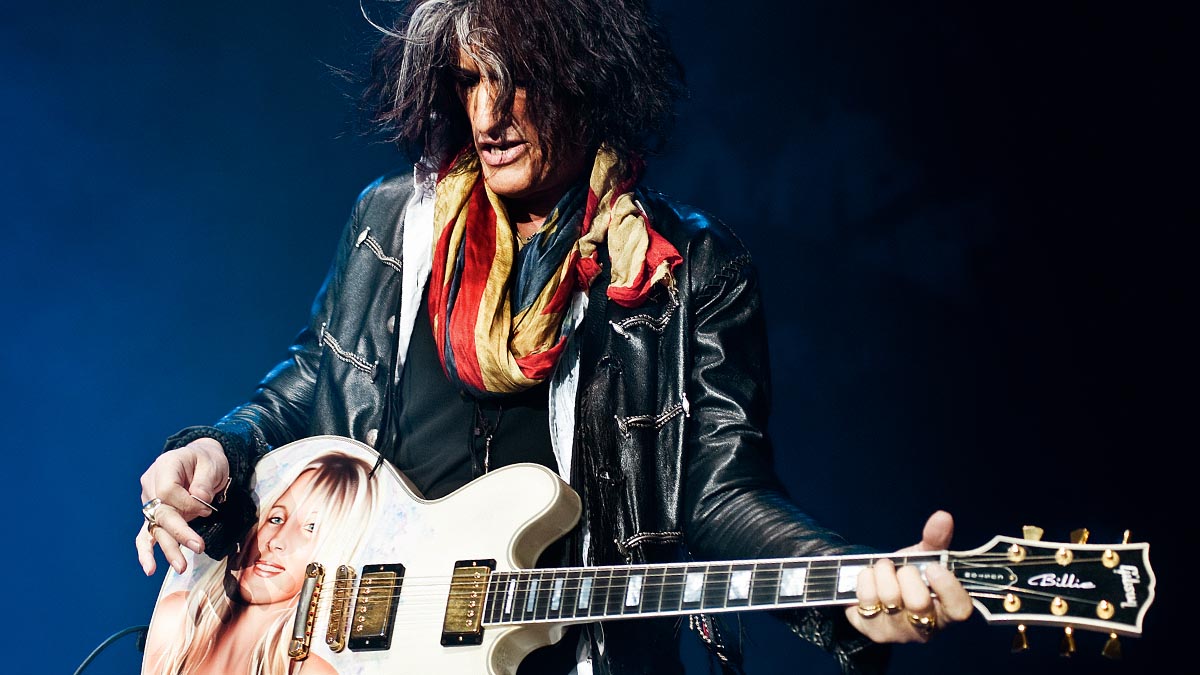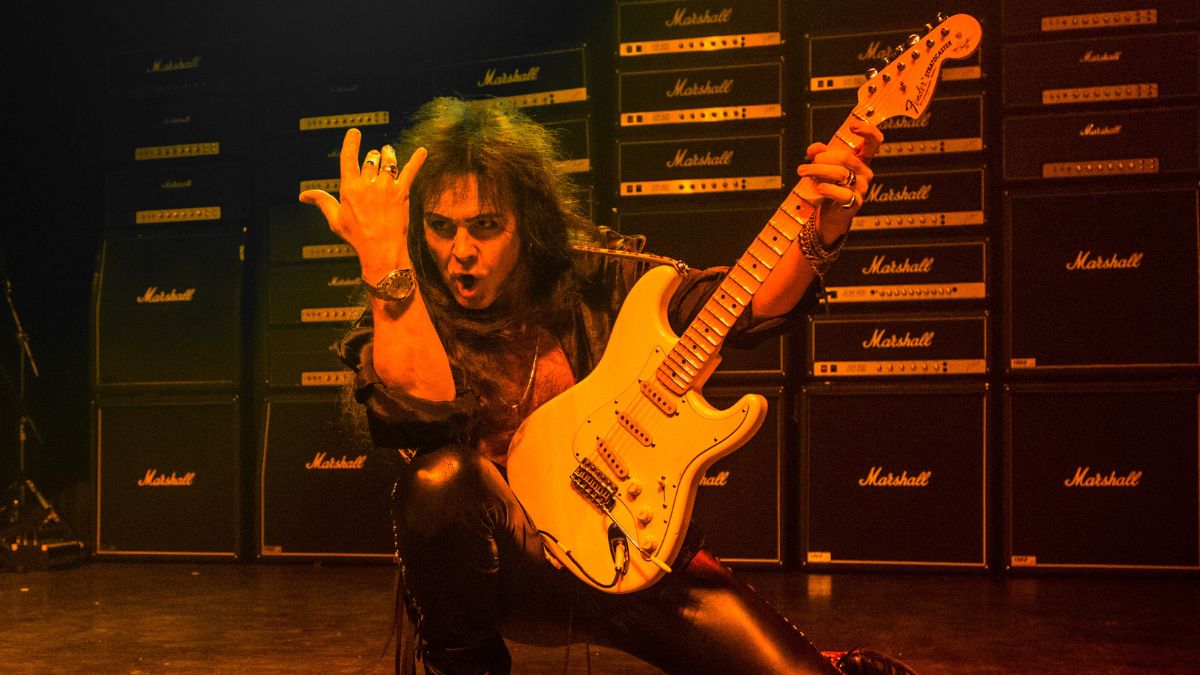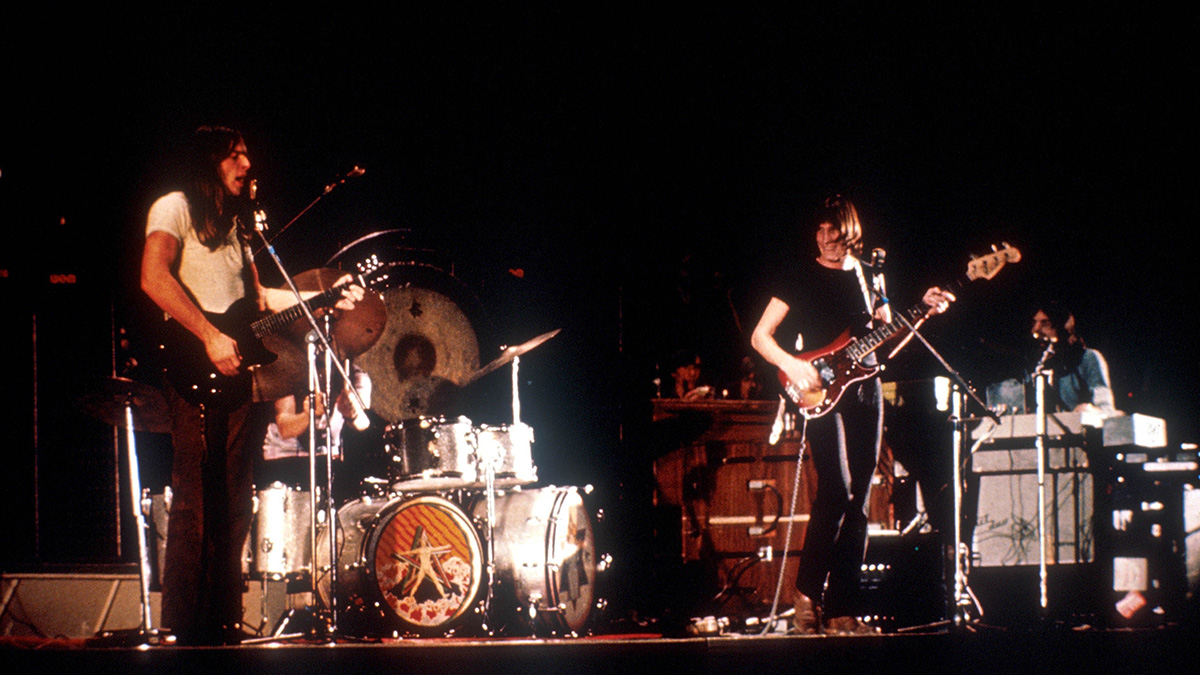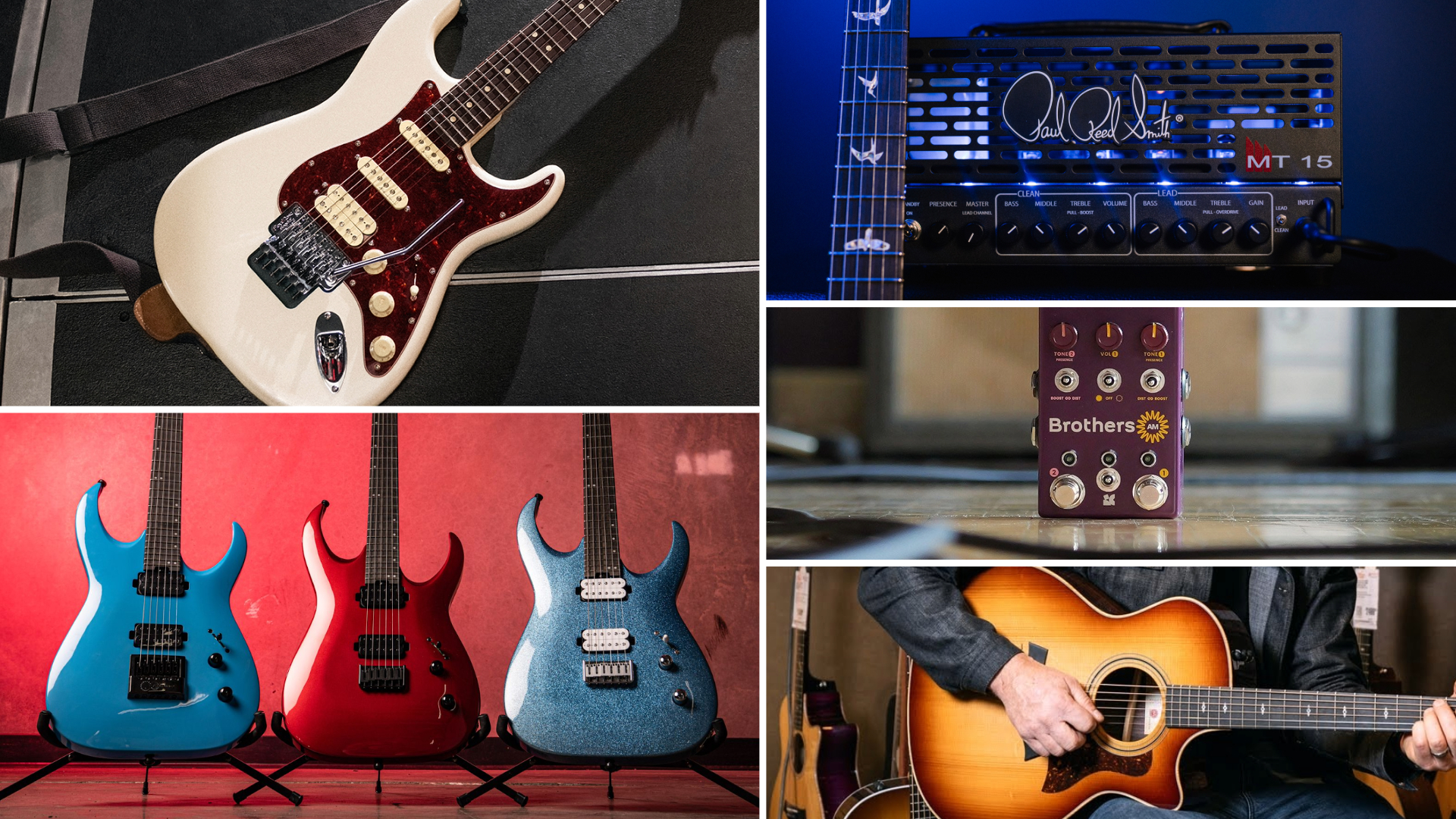Smoking Guns: Trey Bruce Discusses His New Duo Project, King’s Bullet
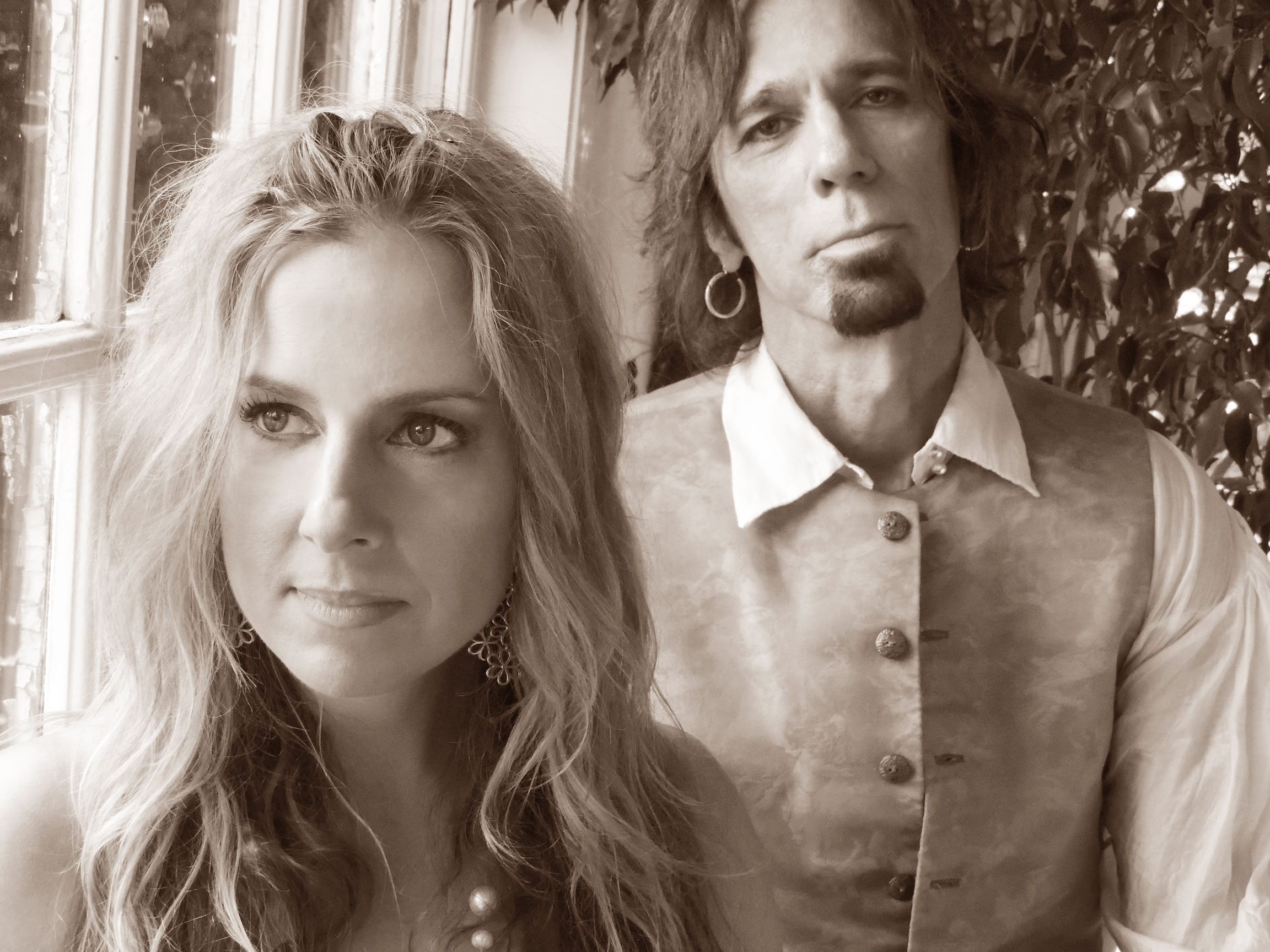
Since moving to Nashville in the 1990s, producer and Emmy-winning songwriter Trey Bruce has written multiple hit singles (Five of them went to No. 1) and has collected more than a dozen ASCAP awards.
He’s also written songs with a variety of artists, including Duff McKagan and Billy Gibbons.
Now Bruce is stepping out of his “comfort zone” and becoming the artist, teaming up with singer/songwriter Loni Rose to form King’s Bullet. The duo’s self-titled debut EP is filled with nothing short of straight-from-the heart songwriting.
I had the chance to speak with Bruce and discuss the new album, his songwriting prowess as well as his affection for vintage guitars and gear.
GUITAR WORLD: How did the King’s Bullet project begin?
Loni was in town going through the typical “Nashville co-writer tour,” just trying to write something that might be a hit for someone on the radio. During that time, I had hired her to sing a demo for a song I had written called "King’s Bullet." She wound up putting that song on a reel when she was out meeting with publishers, and they kept telling her how much they liked it. So it was suggested that she and I get together and start writing more songs like that, songs that come straight from the heart, and then see where it takes us. That’s what we did.
How would a typical writing session go for you and Loni?
Get The Pick Newsletter
All the latest guitar news, interviews, lessons, reviews, deals and more, direct to your inbox!
Sometimes I’d bring in a verse, a title or a scenario with maybe eight lines to it. Then I’d get her melodic feel for the song. We’d usually find inspiration by just looking at our own lives. The big thing was, we always made sure we stayed on target. In the case of the song "One Brick Shy," for example; that was a very personal one for Loni. As we were writing it, she was actually going through that story in real time.
Are there any plans to take King’s Bullet on tour?
It’s a bit early to say, but a lot of people are calling and saying they want to get involved with this music. It’s very exciting. We’ve done a few dates around town as a duo and the album is getting good reviews. We’ll see.
You’re known for being a hit songwriter and producer. How hard was it to make the transition to artist?
I’m all over the map in terms of writing and producing and never had to settle for being just one thing, so being tagged as an artist was a little bit frightening at first. But I love playing music and I’ve always written songs, whether or not I get them cut on albums by Randy Travis, Carrie Underwood or Duff McKagan.
How did you get connected with Duff?
I ran the Nashville office for Chrysalis for a few years, and Kenny MacPherson was my partner in Los Angeles. He had signed Velvet Revolver and at the time, Duff had told him that he had wanted to branch out from the “rock star” image of songwriting. So, they hooked us up and Duff came to town and we became really good friends. I rode the Velvet Revolver bus with him a few times and ended up writing with Scott Weiland and Matt [Sorum] as well.
Did you find any similarities in your styles when writing with Duff?
Duff and I are within a year or two of the same age. He’s from Seattle and I’m from Memphis, but there was almost nothing different about us. We both love writing and we both love all kinds of music. After getting over the shock of really being on the same page of a lot of things, it just became a real natural relationship. We spent a lot of time writing together and also wrote with some other pop and country artists. I even got Billy Gibbons to meet us at Duff’s house one time and the three of us wrote together, which was just a clashing of cultures. So much fun! [laughs]
Tell me a little about your background.
I was a drummer playing in the clubs in Memphis. The scene there was really good. You’d play R&B downtown and rock/hair band stuff out east. One summer, I decided that I really needed to go somewhere and find a scene with an infrastructure. That’s how I ended up in Nashville.
What made you make the switch from drums to guitar?
I was a doing a lot of writing, and it was just a casual, un-serious move. After I realized that I was pretty good, I became saturated in it. I’m a gearophile; a nut about guitars, old amps and just figuring out all of the different combinations that make them speak differently.
Do you have a good story to tell about your gear?
One day, Billy Gibbons was in my room and he was playing my ’58 Burst Reissue through a ’71 Marshall that I had. Of course, it sounded exactly like every ZZ Top record I had ever heard. No pedal, just the guitar plugged directly into the amp.
After he had left, I picked up the guitar and tried to make it sound like that, but there was nothing I could do to make my hands on my guitar sound like his hands on my guitar. I mean, you could plug him into anything and he sounds like Billy Gibbons. It’s in his right hand and his tone is just internal somehow. [laughs]
Keep up with King’s Bullet at their official website and Facebook page.
James Wood is a writer, musician and self-proclaimed metalhead who maintains his own website, GoJimmyGo.net. His articles and interviews are written on a variety of topics with passion and humor. You can follow him on Twitter @JimEWood.
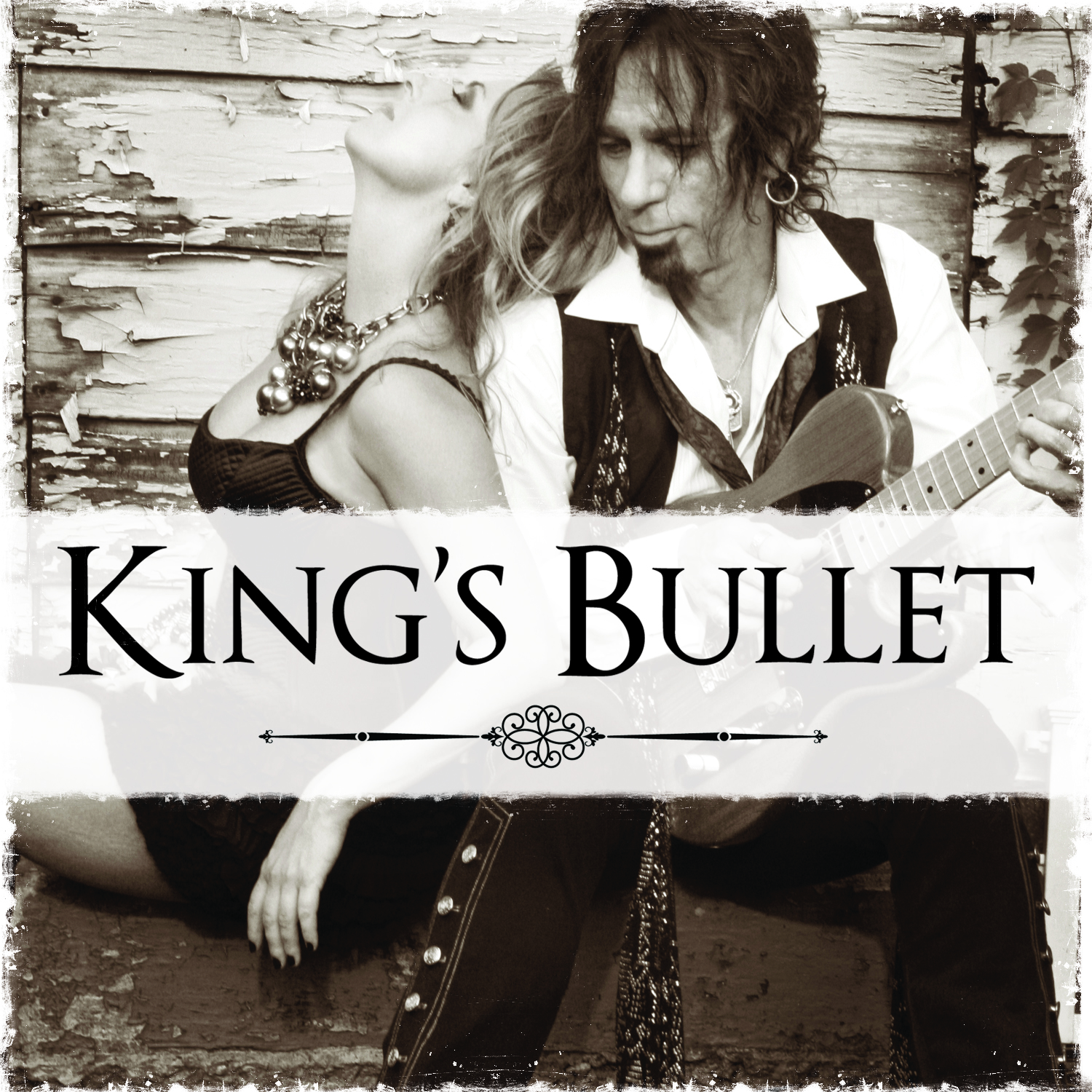
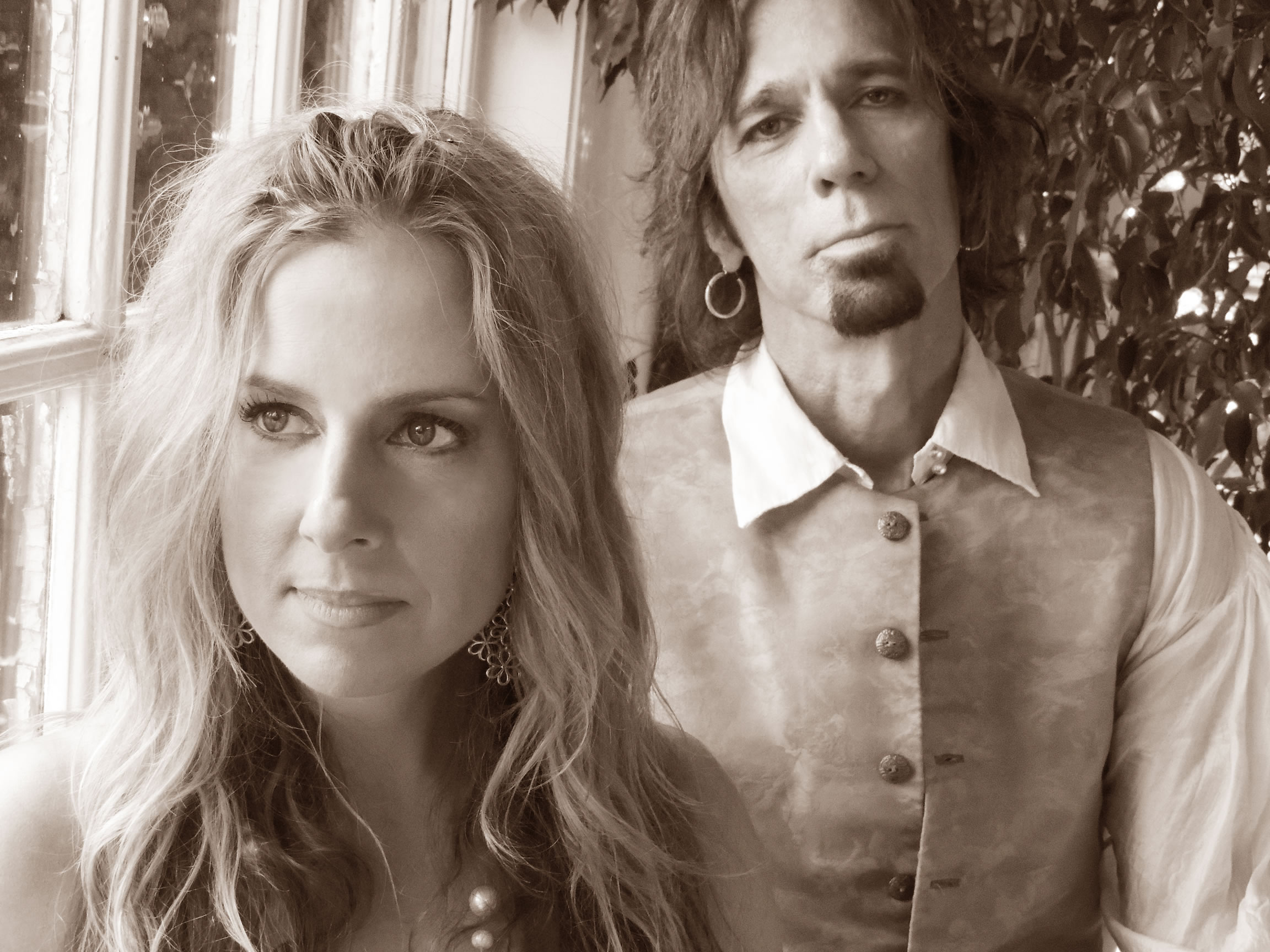
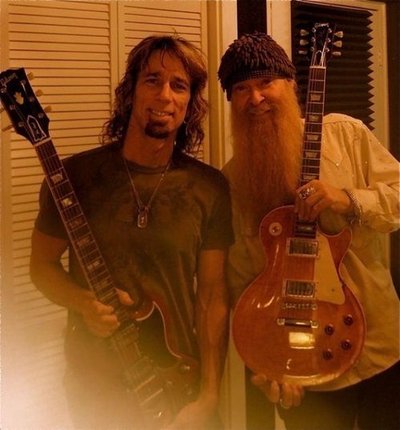
James is a guitarist and freelance writer who's interviewed some of the biggest names in music. He is the author of four books and his writing credits include work for Guitar World, AXS and Yahoo! as well as for his hometown newspaper where he writes on a variety of topics with both passion and humor. As a guitarist, he's performed everywhere from local bars and nightclubs to some of the biggest stages in front of thousands of music fans.
“I heard the Money solo and thought, ‘This is amazing!’ So I sent David a telegram saying, ‘Remember me? I'm in a band now called Roxy Music’”: Phil Manzanera on his friendship with David Gilmour, and the key to the Pink Floyd man's unmistakable tone
“It’s really quite genius, but also hard to learn – it sounds insane, but sometimes the easiest songs still get me nervous”: Kiki Wong reveals the Smashing Pumpkins song she had the most trouble with
